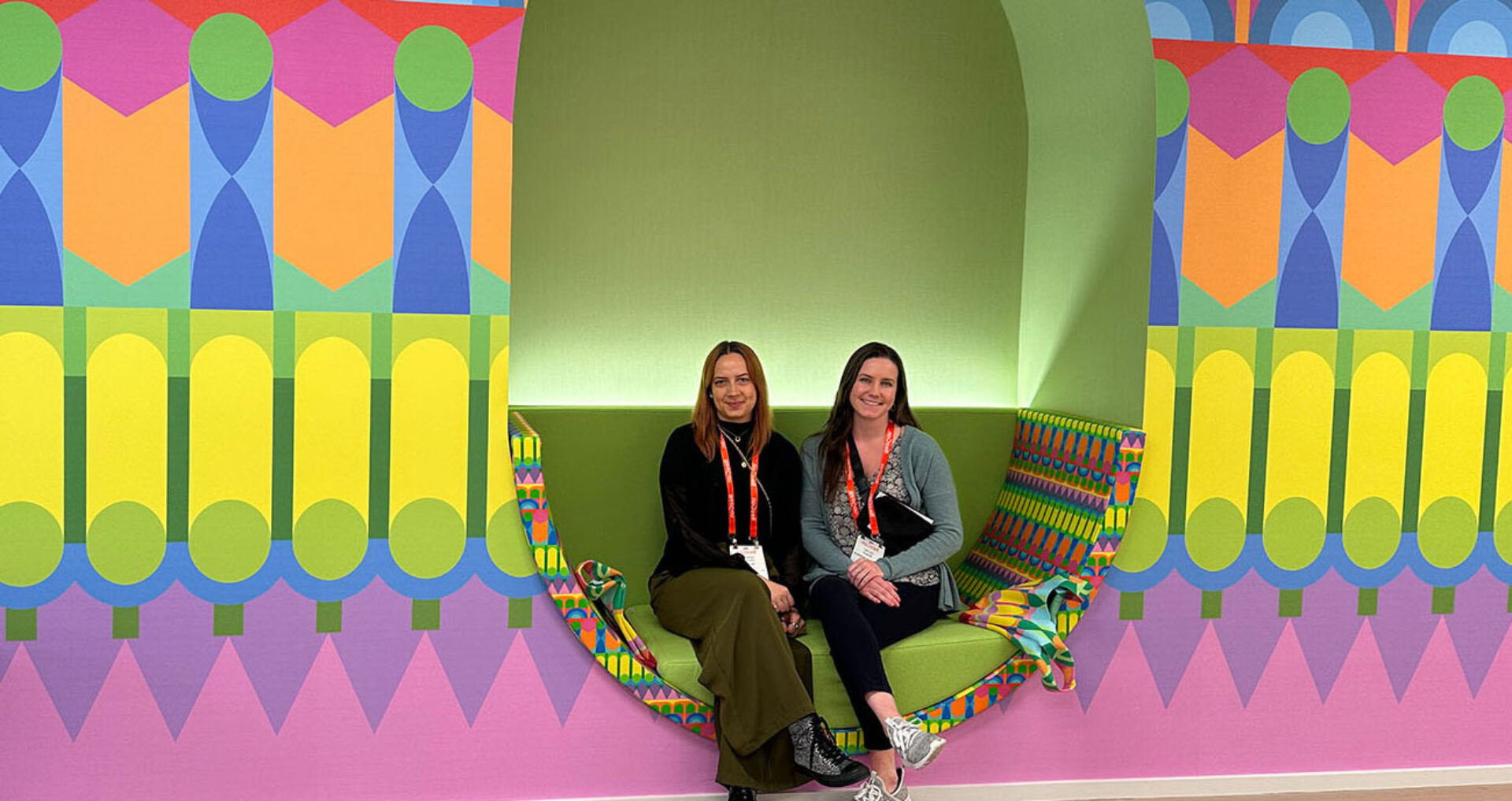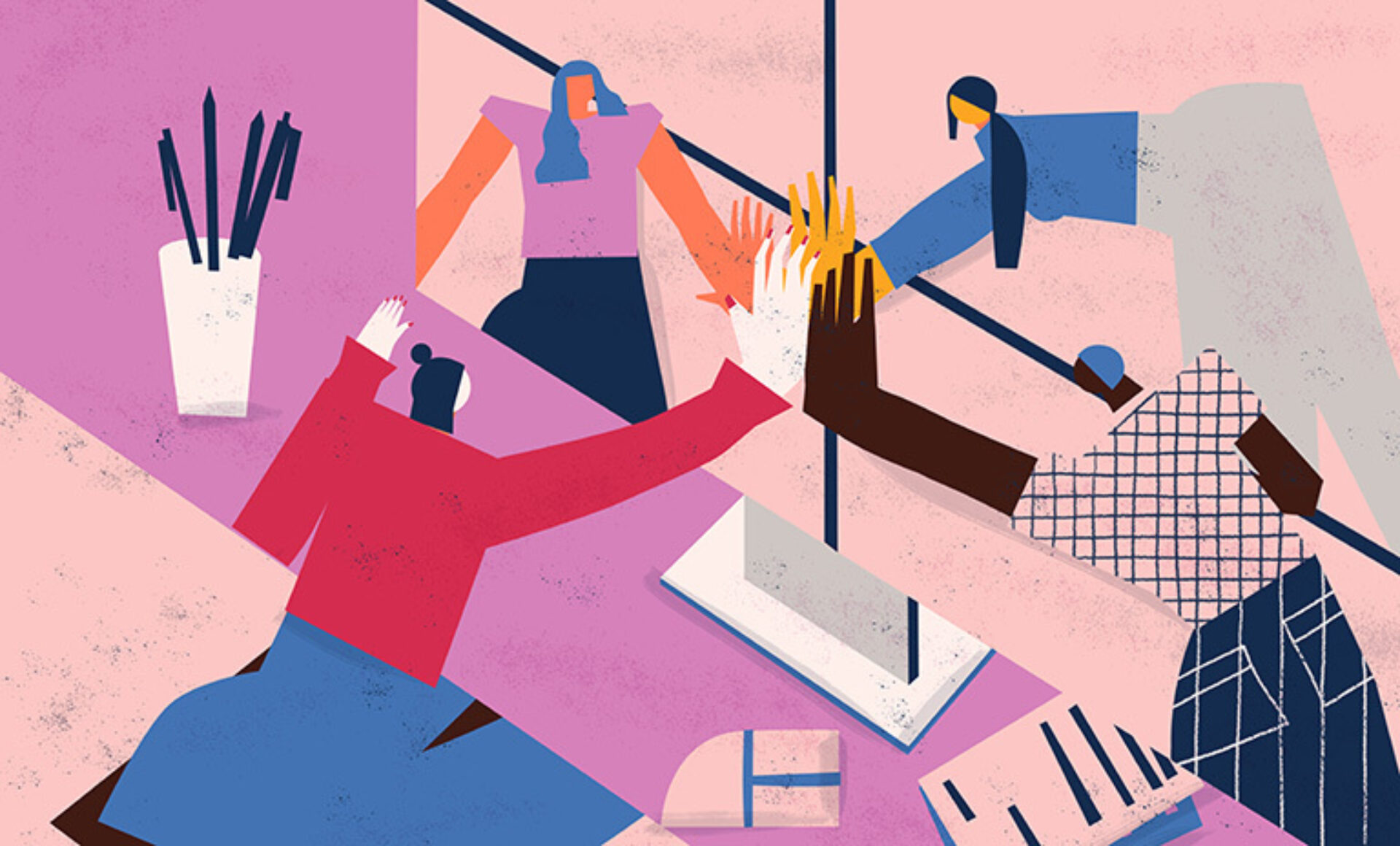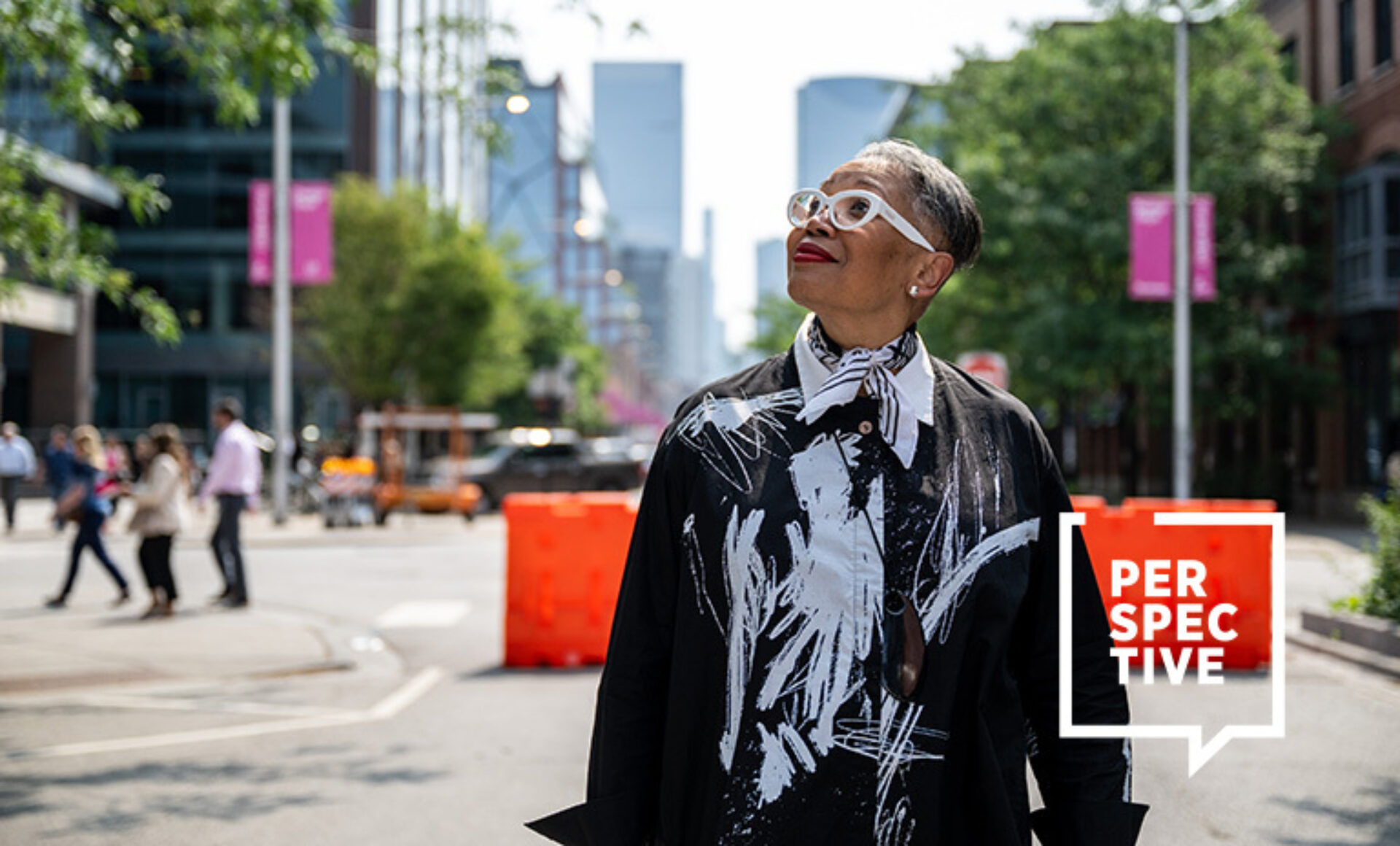Although the classroom can be where a design education starts, the learning doesn’t end there—much like any career, education isn’t always linear. For students, real-world experiences like mentorship, networking, and access to resources are valuable tools in laying the groundwork for their careers. IIDA’s Student Mentoring Program (SMP) provides more than 500 students a year across the United States with a hands-on, personal approach to mentorship that allows them to explore any facet of the interior design industry and blaze their own career paths.
Project designers Delaney Bement and Jacqueline Childress, Assoc. IIDA, from VIA Design teamed up as mentors for the 2024 SMP and were both paired with Layla Caldwell, Student IIDA, an interior architecture student at University of North Carolina at Greensboro. Bement and Childress looked at mentorship not only as a unique opportunity for students, but for design professionals as well—an opportunity to be an active member of the design community, and be reminded of the excitement of discovering your passion. For Caldwell, there was an opportunity to connect with design firms from out of state as she hopes to move post-graduation. Follow along as we get to see what a day in the mentoring program looks like through both the mentor and mentee’s eyes, and the impact it has on students and design professionals alike.

Project Designer
VIA design

University of North Carolina at Greensboro

Project Designer
VIA design
Why is this program an important component in design education?
Layla Caldwell (LC): As a student I think that mentorship is important for your education because you are able to have someone that is not one of your professors be at your disposal to ask questions and ask advice.
Delaney Bement (DB): This program is so important to design education because it gives students firsthand perspective, it allows them to experience the reality of what they are learning in school without going through the early stages of an internship, like organizing the material library. They get to jump right into the core of our work.
Jacqueline Childress (JC): Participating in mentorship programs, [job] shadowing days, or internships is an important component in design education because these activities bridge the gap between classroom learning and the real world of design. By providing students with firsthand experience working alongside practicing designers, they gain a realistic understanding of the challenges, opportunities, and rewards of the profession. This exposure helps them develop practical skills, build professional networks, and make informed decisions about their career paths.
What do you want to see more of in design education?
LC: As a design student I would like to see more hands-ons and more real-world practice. When I was at VIA, I was able to learn and experience new things. Also this summer I had an interior design internship which was very helpful in helping me figure out which design path I would want to continue down in the future.

Image courtesy of Jacqueline Childress and Delaney Bement

Image courtesy of Jacqueline Childress and Delaney Bement

Image courtesy of Jacqueline Childress and Delaney Bement
Why is mentorship important to you? What have you learned from your mentors throughout your career?
DB: Mentorship is important to me because as a mentor it allows me to take a step back from my day-to-day tasks and remember why I chose this profession. Mentorship was incredibly important to me as a mentee because it opened my eyes to how vast this industry is, as I was able to learn from professionals from all corners of the design industry.
JC: Mentorship is important to me because it allows me to share my knowledge and experiences with the next round of young designers. I believe that everyone benefits from having someone who can offer guidance, support, and encouragement. Throughout my career, I've learned the importance of dedication, perseverance, and resiliency. I've also learned the value of building strong relationships with not only colleagues and clients, but other designers and industry representatives as well. My internships were invaluable experiences that helped me develop my skills and gain a better understanding of the industry. I'm grateful for the opportunities I had to learn from experienced professionals and to gain firsthand experience in a design office.
In what ways have you grown throughout this mentorship program?
LC: I've grown through the mentorship program by being able to learn how to communicate with others in the design field. This is super important because you can make connections everywhere you go.
What's your most fond memory of working with your mentee?
DB: My most fond memory with Layla was starting our morning by grabbing coffee at our favorite local coffee shop to sit and allow for a free-flowing conversation. I was impressed by her already vast knowledge of the many facets of our profession, and I was inspired by her drive.
JC: One of my fondest memories with Layla was watching her present her initial design concept for the project prompt. I was impressed by her unique perspective and the thoughtfulness she put into her work. It was clear that she had a strong understanding of the project brief and approached the task with creativity and innovation.

Image courtesy of Jacqueline Childress and Delaney Bement

Image courtesy of Jacqueline Childress and Delaney Bement

Image courtesy of Jacqueline Childress and Delaney Bement
Why would you encourage design professionals to participate in this program?
DB: I would encourage design professionals to continue to or begin to participate in this program because it makes an impact on everyone involved—especially the student, but also the mentor and their colleagues. I will never forget the mentors that I had as a student and what they taught me. At VIA we have even had a high school student who was walking around downtown drawing doors of architectural interest, who happened to see our office and came in to ask us some questions. She ended up having a shadow day with us and it was so clear how much that day opened up her eyes to the profession and helped guide her decisions about her future.
JC: I would encourage design professionals to participate in this mentorship program because it offers a unique opportunity to give back to the design community and help shape the future of the industry. By mentoring aspiring designers, professionals can share their knowledge and experiences and inspire the next generation of talent. Participating in mentorship programs can also be a rewarding experience that helps strengthen one's own skills and knowledge.

Image courtesy of Jacqueline Childress and Delaney Bement

Image courtesy of Jacqueline Childress and Delaney Bement

Image courtesy of Jacqueline Childress and Delaney Bement
What have you learned from your mentors throughout this program?
LC: I learned from my mentors that there are a lot of different career paths in design you are able to take. I also learned that making connections and staying in contact with them [Bement and Childress] is really valuable.
What have you learned from your mentee that makes you excited for the future of the design profession?
DB: I am excited for the future of the design profession because of the creative expression and forward focus that Layla exemplified in her project prompt that we gave her, and during her portfolio presentation. I can’t wait to see what young designers will do with the design software that continuously improves and allows us to truly create anything that our minds come up with.
JC: One of the things that excites me most about the future of the design profession is the dedication and commitment I see in my mentee. Layla's willingness to travel long distances to participate in mentorship programs and her openness to trying new things are qualities that will serve her well in her career. Her passion for learning and growth is inspiring. I'm confident she will make a significant contribution to the field of design.
Visit the table of contents for more Perspective: State of Education







